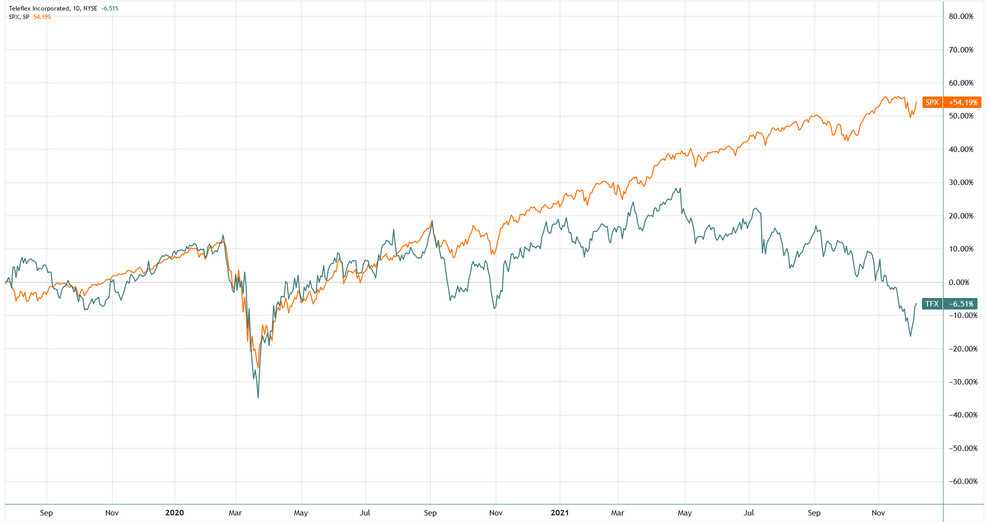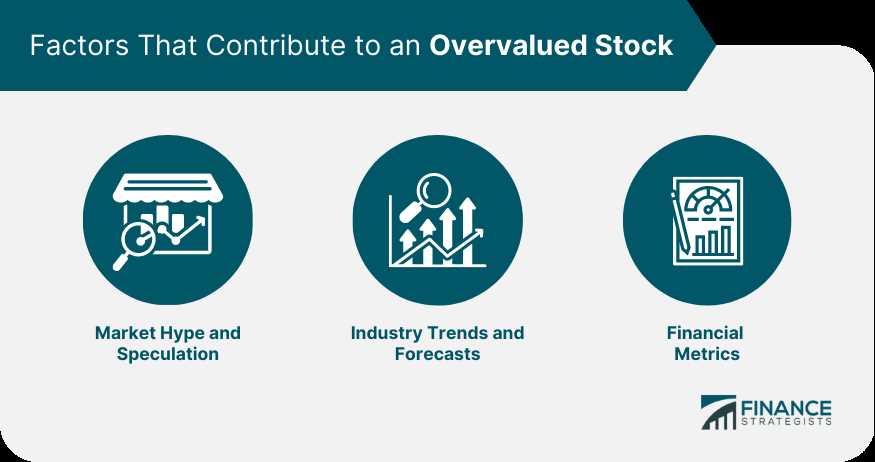What is an Overvalued Stock?

An overvalued stock refers to a situation where the market price of a stock is higher than its intrinsic value. In other words, the stock is trading at a price that is not justified by its fundamentals. This can happen when investors have overly optimistic expectations about the company’s future performance or when market conditions create a speculative bubble.
When a stock is overvalued, it means that investors are paying more for the stock than it is worth. This can be a risky situation because eventually, the market will correct itself and the stock price will likely fall. Investors who buy overvalued stocks may end up losing money if they hold onto the stock for too long.
There are several factors that can contribute to a stock becoming overvalued. These include market sentiment, investor speculation, and the overall economic conditions. For example, during a bull market, when investor confidence is high and stock prices are rising, it is more likely for stocks to become overvalued.
Recognizing Overvalued Stocks: Examples and Indicators
There are several indicators that can help investors identify overvalued stocks:
| Indicator | Description |
|---|---|
| Price-to-Earnings (P/E) Ratio | The P/E ratio compares a company’s stock price to its earnings per share. A high P/E ratio may indicate that the stock is overvalued. |
| Price-to-Sales (P/S) Ratio | The P/S ratio compares a company’s stock price to its revenue per share. A high P/S ratio may indicate that the stock is overvalued. |
| Price-to-Book (P/B) Ratio | The P/B ratio compares a company’s stock price to its book value per share. A high P/B ratio may indicate that the stock is overvalued. |
| Dividend Yield | The dividend yield is the annual dividend payment divided by the stock price. A low dividend yield may indicate that the stock is overvalued. |
| Market Capitalization | A company’s market capitalization is the total value of its outstanding shares. An excessively high market capitalization may indicate that the stock is overvalued. |
| Analyst Recommendations | Analyst recommendations can provide insights into whether a stock is overvalued or undervalued. If analysts have a consensus that a stock is overvalued, it may be a warning sign. |
It is important to note that these indicators should not be used in isolation but rather in combination with other fundamental and technical analysis tools. Additionally, investors should consider the overall market conditions, industry trends, and the company’s financial health when assessing whether a stock is overvalued.
Another example of an overvalued stock is when a company’s stock price rises rapidly without any significant improvement in its financial performance. This can occur due to market hype, speculation, or investor irrationality.
The Risks of Investing in Overvalued Stocks

Investing in overvalued stocks can be risky and potentially lead to financial losses. When a stock is considered overvalued, it means that its current price is higher than its intrinsic value, or what the stock is actually worth based on its fundamentals.
One of the main risks of investing in overvalued stocks is the potential for a price correction. If the market realizes that a stock is overvalued, investors may start selling their shares, causing the stock price to decline. This can result in significant losses for those who bought the stock at a high price.
Another risk is the possibility of missing out on better investment opportunities. By investing in overvalued stocks, you tie up your capital in assets that may not provide significant returns in the long run. This can prevent you from taking advantage of other undervalued stocks or assets that have the potential for higher growth and profitability.
Additionally, investing in overvalued stocks can lead to a lack of diversification in your portfolio. If a significant portion of your investments is allocated to overvalued stocks, you may be exposed to a higher level of risk. Diversification is important for spreading risk and reducing the impact of any single investment’s performance on your overall portfolio.
Furthermore, investing in overvalued stocks can be emotionally challenging. Seeing the value of your investments decline can cause stress and anxiety, which may lead to impulsive decision-making. It is important to remain rational and stick to your investment strategy, even in the face of market volatility.
To mitigate the risks associated with investing in overvalued stocks, it is crucial to conduct thorough research and analysis before making any investment decisions. This includes evaluating the company’s financial health, industry trends, and market conditions. Additionally, diversifying your portfolio and setting realistic expectations for returns can help minimize the potential negative impact of investing in overvalued stocks.
Strategies for Dealing with Overvalued Stocks
- Sell the stock: One of the most straightforward strategies is to sell the overvalued stock. By doing so, you can lock in any gains you may have made and avoid potential losses if the stock’s price were to decline.
- Set a stop-loss order: Another strategy is to set a stop-loss order, which automatically sells the stock if it reaches a certain price. This can help protect your investment by limiting potential losses.
- Hedge your position: If you believe the stock’s price may decline but don’t want to sell it outright, you can consider hedging your position. This involves taking an offsetting position, such as buying put options or short-selling the stock, to protect against potential losses.
- Rebalance your portfolio: If you have multiple stocks in your portfolio and one becomes overvalued, you can rebalance your portfolio by selling some of the overvalued stock and investing in other undervalued stocks. This can help maintain a diversified portfolio and potentially reduce risk.
- Monitor the stock: Sometimes, an overvalued stock can continue to rise in price due to market speculation or other factors. In such cases, it may be prudent to closely monitor the stock and consider selling it when the market sentiment changes or when it reaches a more reasonable valuation.
- Seek professional advice: If you’re unsure about how to deal with an overvalued stock, it can be helpful to seek advice from a financial advisor or investment professional. They can provide guidance based on their expertise and help you make informed decisions.

Emily Bibb simplifies finance through bestselling books and articles, bridging complex concepts for everyday understanding. Engaging audiences via social media, she shares insights for financial success. Active in seminars and philanthropy, Bibb aims to create a more financially informed society, driven by her passion for empowering others.
